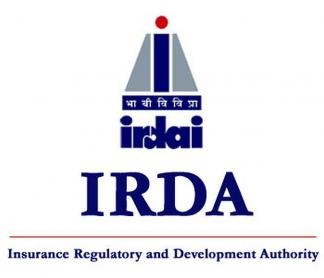Insurance business pertaining to Government social security schemes such as Pradhan Mantri Awas Yojana, Pradhan Mantri Suraksha Bima Yojana (PMSBY),Pradhan Mantri Jeevan Jyoti Bima Yojana (PMJJY), etc. where total/ partial premium is paid by the Government, with/without any contribution from the members/beneficiaries covered will be considered for rural and social sector obligations
Hyderabad:
In a bid to achieve the objective of “Insurance For All”, insurance regulator IRDAI has raised the mandatory coverage under `Rural, Social Sector and Motor Third Party Obligations’ norms.
Unveiling a new exposure draft-IRDAI (Rural, Social Sector and Motor Third Party Obligations) Regulations, 2024, on Tuesday, the IRDA has said a new strategy and fresh approach have been devised to grow insurance penetration in the country.
The following are some of the major changes proposed in the draft:
Life Insurance:
The minimum number of lives to be covered by all life insurers in all gram panchayats in the country will be 30% in each gram panchayat subject to a minimum of 25,000 gram panchayats as driven by lead insurer in the first year. This increases to 40% lives subject to a minimum 50,000 gram panchayats and 50% lives subject to a minimum of 75,000 gram panchayats in year 2 and 3 respectively.
General Insurance:
– The minimum number of dwellings under fire insurance and vehicles under Motor (Comprehensive and TP) to be covered by all general insurers in all gram panchayats in the country has to be 30% in each gram panchayat subject to a minimum of 25,000 gram panchayats as driven by lead insurer in the first year. This increases to 40% dwellings under fire insurance and vehicles under Motor (Comprehensive and TP) subject to a minimum 50,000 gram panchayats and 50% lives subject to a minimum of 75,000 gram panchayats in year 2 and 3 respectively.
Health Insurance:
The minimum number of lives under health and personal accident insurance to be covered by all general and SAHI insurers in all gram panchayats in the country has to be 30% in each gram panchayat subject to a minimum of 25,000 gram panchayats as driven by lead insurer in the first year. This increases to 40% lives under health and personal accident insurance subject to a minimum 50,000 gram panchayats and 50% lives under health and personal accident insurance subject to a minimum of 75,000 gram panchayats in year 2 and 3 respectively.
Social Sector
Since all insurers have been able to achieve the social sector obligations, the number of lives to be covered under social sector have been increased to 20% in year 1 after notification.
Insurance business pertaining to Government social security schemes such as Pradhan Mantri Awas Yojana, Pradhan Mantri Suraksha Bima Yojana (PMSBY),Pradhan Mantri Jeevan Jyoti Bima Yojana (PMJJY), etc. where total/ partial premium is paid by the Government, with/without any contribution from the members/beneficiaries covered will be considered for rural and social sector obligations.
Insurance policies covering lives issued to BPL cardholders, MNREGA cardholders, eShram cardholders, DBT beneficiaries, Ayushman Bharat cardholders, Pradhan Mantri Mudra Yojana beneficiaries, Jan Dhan account holders, beneficiaries of PM Kisan Samman Nidhi Yojana, PM Viswakarma Yojana, Pradhan Mantri Jan Arogya Yojana, etc would qualify for Social Sector Obligation.
Micro insurance policies issued are eligible to be reckoned for Social Sector obligations. Insurance policies sold through Bima Vahaks will be counted towards rural and social sector obligations.
Motor Third Party Obligations
With regard to motor third party insurance, the obligations are specified for goods carrying and passenger carrying vehicles as nearly 50% of the vehicles in these 2 categories are uninsured. They are important segments of the motor insurance business and are exposed to third party claims.
Every general insurer is therefore required to underwrite at least 20% increase over total number of goods carrying and passenger carrying vehicles as compared to what was covered in the last financial year or 20,000 vehicles under these categories or 10,000 vehicles in each category, whichever is higher.
Coverage of new Goods Carrying and Passenger Carrying vehicles will not be counted towards Motor TP obligations. Motor TP obligation fulfilment shall be contributed by renewal of the existing vehicles and uninsured vehicles that are insured provided the gap in insurance is at least 30 days.
Every new insurer will have to underwrite a minimum of 10,000 goods carrying and 10,000 passenger carrying vehicles in the first financial year of its operations.
Option to fulfill the obligations
The insurers are allowed to buy and sell the obligations from out of the surplus to the extent of 20%. The insurer who has sold the obligations will continue to be the insurer and will be responsible for servicing the insurance policy and settling claim under it.
The comments of the various stakeholders and the general public on the exposure draft should reach IRDAI by 27th February.

